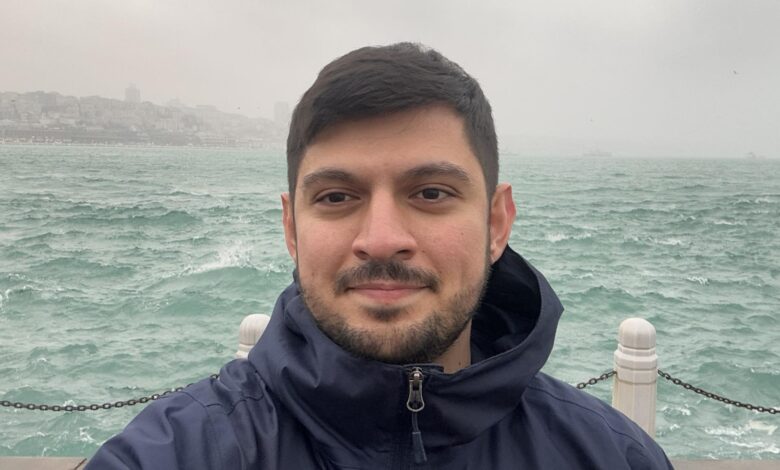
Azerbaijani Journalism Student Enrolled in Tbilisi Denied Entry to Georgia
Javid Ahmedov, a 26-year-old Azerbaijani student pursuing a master’s degree in journalism at the Georgian Institute of Public Affairs (GIPA), was denied entry to Georgia in what appears to be part of a broader pattern of border refusals affecting journalists, activists, and human rights defenders.
Ahmedov said he was told at the border he owed two fines totaling GEL 10,000 (about USD 3,700) for allegedly blocking the road in front of the Georgian parliament. He said border guards later informed him that even if he paid, he would not be allowed to enter the country.
“When I asked for the reason, they could not explain anything,” Ahmedov wrote in a September 6 social media post from Istanbul Airport, where he has been sent back. “They just kept repeating ‘for other reasons,’” he added, referring to a vague provision cited in other similar refusals.
Ahmedov first wrote on Facebook on August 24, as he was leaving Georgia for Turkey through the Sarpi crossing, that border officers told him he had been fined once – GEL 5,000 (USD 1,850) – but gave no information about any additional fine. He said border officers stamped his passport “forcefully” even after he explained he would stay, and that he was told he could pay the fine upon returning to Georgia. Speaking to RFE/RL’s Georgian Service, Ahmedov said he was present on Rustaveli Avenue as a journalist with a camera.
Ahmedov studies multimedia journalism and media management at GIPA through a U.S. government-funded scholarship program for Armenian and Azerbaijani students. “All the cops were looking at the USA visa in my passport one by one and making a serious face, as if it was a big crime,” he said.
The entry denial “threatens my ability to finish my master’s degree,” Ahmedov wrote on X.
His case follows a string of refusals in recent months. On August 3, French freelance photojournalist Hicham El Bouhmidi, who had been covering ongoing protests in Tbilisi, was turned away at the border. In May, EU diplomat Simon Vanderbroucke was denied entry — the first such reported case involving a diplomat — though authorities later blamed a technical problem and said he could return to resume his mission.
In late May, the Polish and French embassies in Georgia issued advisories calling their citizens to consider potential entry risks, including participation in protests and social media activity, before traveling.
Also Read:
- 12/07/2025 – Former American Diplomat and Expat Denied Entry into Georgia
- 09/05/2025 – Belarusian Activist Denied Entry to Georgia
- 23/04/2025 – Amendments to Laws Relating to Foreign Nationals Initiated in Rump Parliament
- 20/03/2025 – Lithuanian Rights Defender Denied Entry to Georgia
- 31/03/2025 – French Photojournalist Denied Entry to Georgia
This post is also available in: ქართული